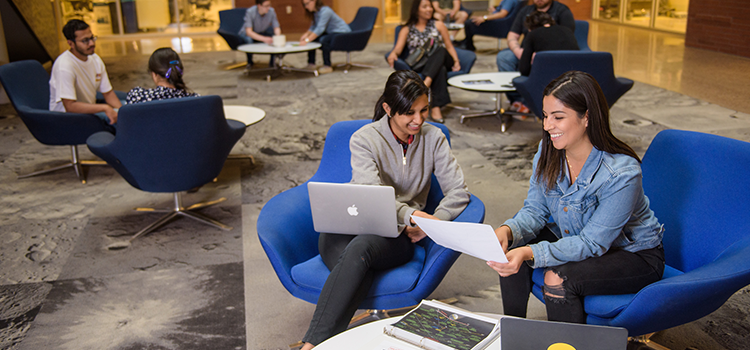
Tips for your digital portfolio
A digital portfolio is a useful tool to help graduate students develop professional identities through reflective practices and demonstrated learning outcomes. When curating your digital portfolio:
- Tell your story. Explain who you are, how you got here and where you see yourself in the future.
- Align your reflective practices with your short and long-term goals. Consider how you met your set-forth goals and how doing so helps take you to the next step.
Arizona State University’s Graduate College encourages all graduate students to curate a digital portfolio during their academic journeys. A digital portfolio is an electronic collection of your reflective learnings over time. We also support academic units’ development of program-specific time-to-degree digital portfolios, which help monitor students’ academic progress. Time-to-degree portfolios promote better overall organization, degree tracking, student learning reflections and communication between students and their mentors.
Learn more about creating a digital portfolio in a Digication site, ASU’s official digital portfolio platform.
More stories from the Graduate Insider

Inside Graduate College’s Three Minute Thesis competition
When Aliyah Egan stepped onto the stage as a master’s student in last year’s Graduate College Three Minute Thesis (3MT) competition, she faced a challenge familiar to many researchers: explaining complex, specialized work to an audience with little or no background in her field.

Mentoring with intention: Strengthening graduate support at ASU
January is National Mentoring Month, a time to celebrate the impact mentoring can have and to reflect honestly on where gaps remain. At Arizona State University, mentoring is recognized as a critical component of graduate student success.

Graduate education is an adventure
About eighteen months ago, I set out on a journey walking the islands of the Dodecanese during a sailing trip in Türkiye and Greece with several friends. Along the way, I found winding paths, timeless villages and breathtaking views of sea and sky. That experience got me thinking about how adventure shows up in other parts of life, especially in learning.